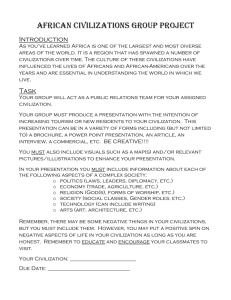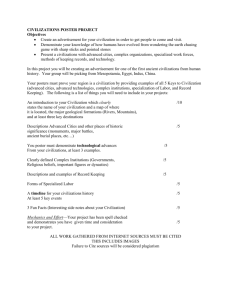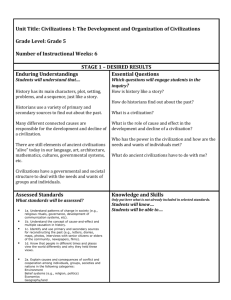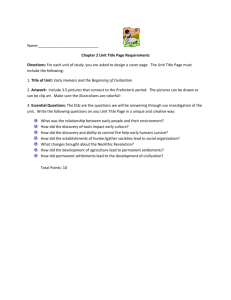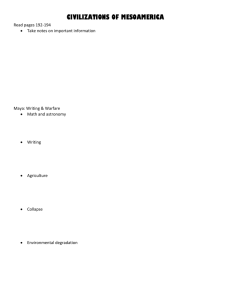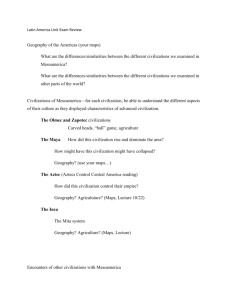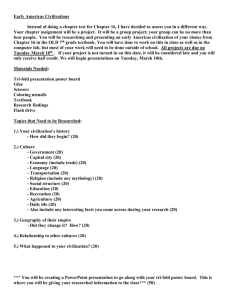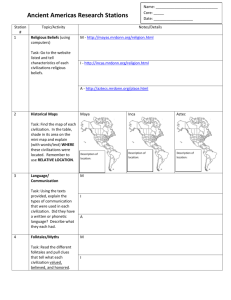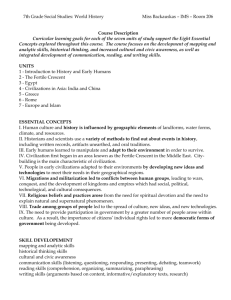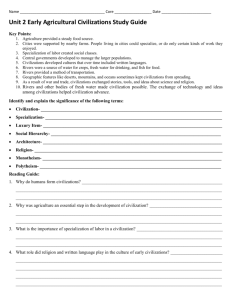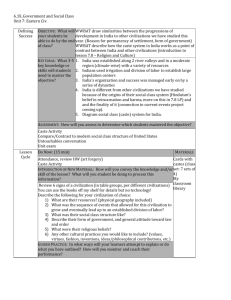Please make sure you can identify the six characteristics for a small
advertisement
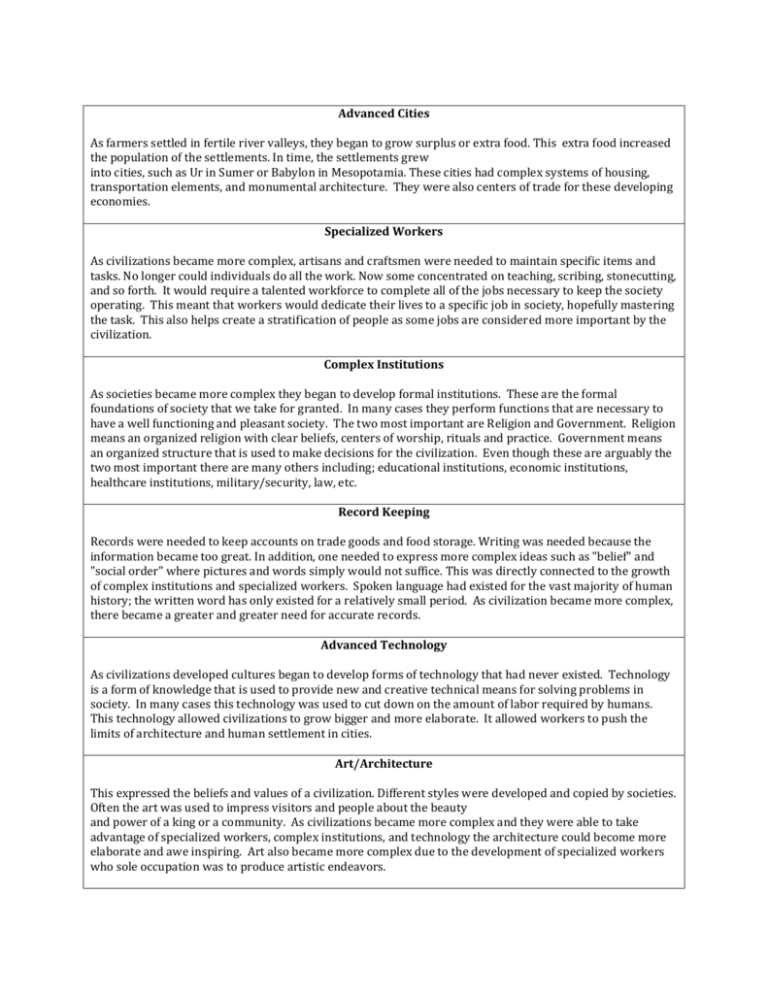
Advanced Cities As farmers settled in fertile river valleys, they began to grow surplus or extra food. This extra food increased the population of the settlements. In time, the settlements grew into cities, such as Ur in Sumer or Babylon in Mesopotamia. These cities had complex systems of housing, transportation elements, and monumental architecture. They were also centers of trade for these developing economies. Specialized Workers As civilizations became more complex, artisans and craftsmen were needed to maintain specific items and tasks. No longer could individuals do all the work. Now some concentrated on teaching, scribing, stonecutting, and so forth. It would require a talented workforce to complete all of the jobs necessary to keep the society operating. This meant that workers would dedicate their lives to a specific job in society, hopefully mastering the task. This also helps create a stratification of people as some jobs are considered more important by the civilization. Complex Institutions As societies became more complex they began to develop formal institutions. These are the formal foundations of society that we take for granted. In many cases they perform functions that are necessary to have a well functioning and pleasant society. The two most important are Religion and Government. Religion means an organized religion with clear beliefs, centers of worship, rituals and practice. Government means an organized structure that is used to make decisions for the civilization. Even though these are arguably the two most important there are many others including; educational institutions, economic institutions, healthcare institutions, military/security, law, etc. Record Keeping Records were needed to keep accounts on trade goods and food storage. Writing was needed because the information became too great. In addition, one needed to express more complex ideas such as "belief" and "social order" where pictures and words simply would not suffice. This was directly connected to the growth of complex institutions and specialized workers. Spoken language had existed for the vast majority of human history; the written word has only existed for a relatively small period. As civilization became more complex, there became a greater and greater need for accurate records. Advanced Technology As civilizations developed cultures began to develop forms of technology that had never existed. Technology is a form of knowledge that is used to provide new and creative technical means for solving problems in society. In many cases this technology was used to cut down on the amount of labor required by humans. This technology allowed civilizations to grow bigger and more elaborate. It allowed workers to push the limits of architecture and human settlement in cities. Art/Architecture This expressed the beliefs and values of a civilization. Different styles were developed and copied by societies. Often the art was used to impress visitors and people about the beauty and power of a king or a community. As civilizations became more complex and they were able to take advantage of specialized workers, complex institutions, and technology the architecture could become more elaborate and awe inspiring. Art also became more complex due to the development of specialized workers who sole occupation was to produce artistic endeavors.

